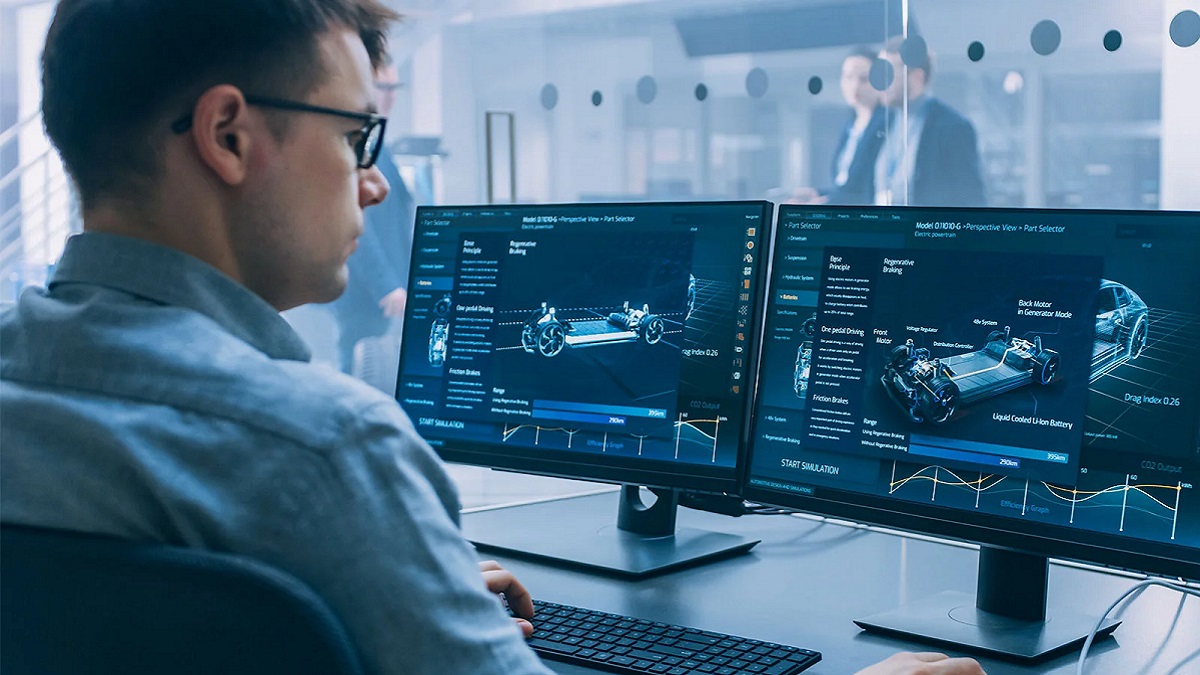WHAT IS A FEASIBILITY STUDY?
A feasibility study (manufacturing feasibility) is a procedure that aims to determine the chances of success of a project as well as its cost-effectiveness. The cost-benefit analysis is integrally related to the feasibility study. A feasibility review covers both technical issues with regard to a company's manufacturing capabilities and economic aspects regarding the actual benefits of a solution.
A project feasibility study is of great importance for minimizing the risks of manufacturing automotive components as well as injection molds, among other things. It is also important to correctly execute this assessment. It is necessary to use a company with adequate knowledge and experience in the field of manufacturing the parts in question. At the same time, this is a procedure that is limited to preliminary understanding – the geometry and basic physical characteristics of the product are studied without going into the manufacturing process itself.
The implementation of a feasibility study as part of the parts manufacturing process translates into the facilitation of further procedures related to the analysis of the technical condition of components. It is also a way to reduce the cost of developing a modern solution. In addition, the proper use of this procedure makes it possible to reduce the time to market by eliminating potential design errors at an early stage, which could otherwise significantly delay the development of an adequate solution. It is worth bearing in mind that the production environment is very complex – achieving the desired results requires focusing on many issues. A feasibility study allows for a more effective CBA, that is, a cost-benefit analysis of the implementation of a given project.
IMPROVING THE PRODUCTION PROCESS – AT WHAT STAGE OF PRODUCTION IS THE PROJECT FEASIBILITY STUDY IMPLEMENTED?
It is good practice to start the process of manufacturing auto parts precisely with a feasibility analysis. This is the key to ensuring that cooperation yields the expected results and the process itself can run smoothly. The implementation of a feasibility study at the initial stage of cooperation brings another important benefit – the opportunity to redesign and adapt the product in terms of both the customer's expectations and the OEM's performance capabilities. The feasibility study provides a lot of valuable data on the parameters of the desired component. If carried out by personnel with sufficient experience and knowledge, it is possible to implement certain adjustments that will significantly improve the manufacturing process without adversely affecting the behavior of the final product.

TECHNICAL ANALYSIS IS A PART OF FEASIBILITY STUDY
This stage allows us to examine an even wider range of parameters for a given product. In the case of automotive parts, we are talking about mechanical, thermal (relating to cooling, among other things) and electrical properties. Manufacturing companies that use modern solutions often focus on this very stage to determine even more precisely whether the final product will meet expectations.
By conducting a feasibility study and checking as many technical parameters as possible, it is possible to significantly reduce production risks. As a result, we can be sure that the goods we receive will perform well in their application and, at the same time, the number of rejected components will also be reduced. This is of great importance for optimizing production, its efficiency, its ecological nature, as well as its efficiency. Rapid industrial and logistical changes in the 21st century have made supply chain flexibility crucial. Reducing product deployment time without sacrificing the quality of manufactured components is a huge-added value for the company outsourcing production.

MODERN TECHNOLOGIES ARE KEY IN THE FEASIBILITY STUDY AND SUBSEQUENT ANALYSES
When analyzing product parameters, we use a number of modern technologies, such as 3D scans and 3D printing (to develop prototypes), as well as the most developed simulation tools (for example, MoldFlow software in the case of injection molds). Feasibility analysis alone opens the gates for further processes. Proper execution of this stage is crucial to satisfaction with the cooperation with the company involved in manufacturing the component. When taking measurements at this stage, we rely on geometry testing software, namely CAE (Computer Aided Engineering) and CAD (Computer Aided Design) tools. The data returned by the programs also allows us to estimate the cost of implementation.

WHY CHOOSE KNAUF AUTOMOTIVE?
When implementing automotive projects, it is worthwhile to use the support of trusted partners who have the right know-how and extensive infrastructure. Knauf Automotive is a brand that aims to work with its contractors as efficiently as possible. The target effect is primarily to increase production efficiency as well as the flexibility of the supply chain.
DOWNLOAD CASE STUDY OF COOPERATION IN ONE-STOP-SHOP MODEL
Initial data on a specific part gained through a feasibility study allows an initial assessment to be made whether a solution will be cost-effective and efficient. The subsequent cost-benefit analysis is based on our knowledge and experience in the production of components, injection molds and other solutions for industry. We provide comprehensive assistance at every stage of the design and production of new solutions. We select appropriate materials based on rheological analysis, make prototypes, and efficiently test and verify all technical parameters of finished components with the highest production standards. Our support is based on the use of innovative tools, such as 3D scanners, among others. In addition, we rely on state-of-the-art software and the use of a production infrastructure that allows us to maintain repeatability and efficiency. As a result, our services bring considerable added value to automotive companies that want to improve the quality of their production and adapt it to the expectations of the 21st century market.